-- Exhibit–
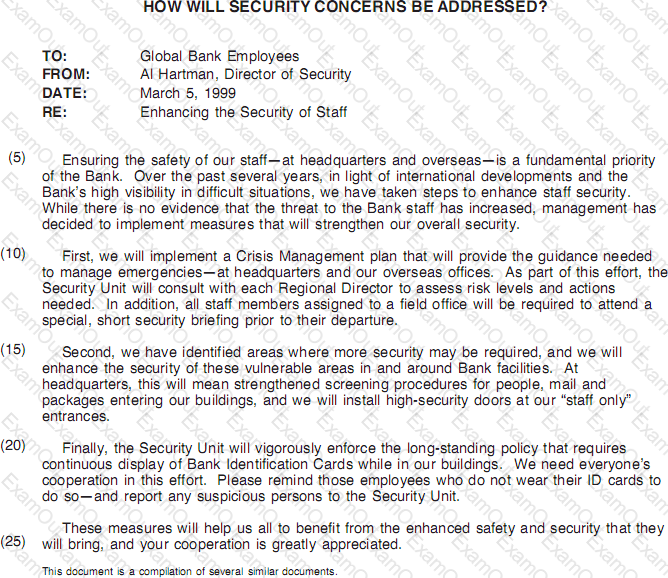
-- Exhibit --
What does “vulnerable” (line 16) mean?
-- Exhibit–
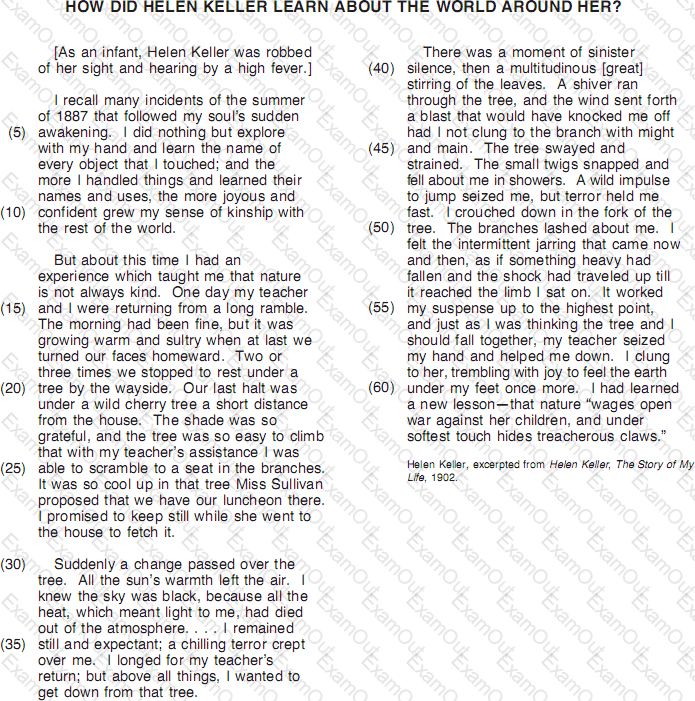
-- Exhibit --
How could our reaction to a sudden storm be similar to Helen’s?
-- Exhibit–
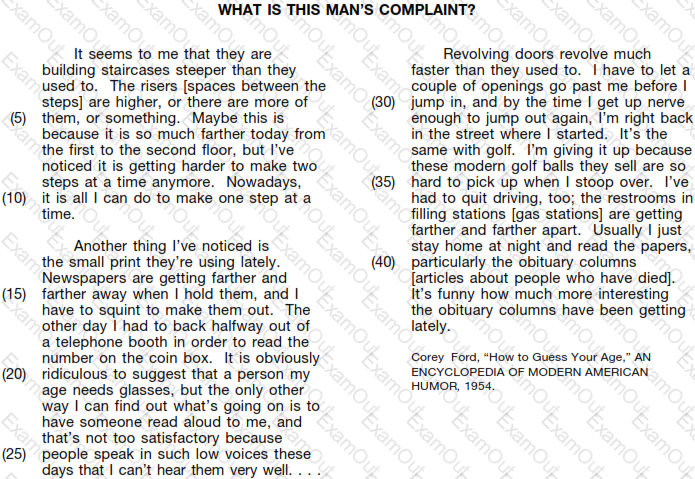
-- Exhibit --
Later in the essay from which this excerpt is taken, a young man offers to help the narrator to cross the street.
With this information and the information in this excerpt, what can the reader conclude about the actual effect the aging process is having on the narrator?
-- Exhibit–
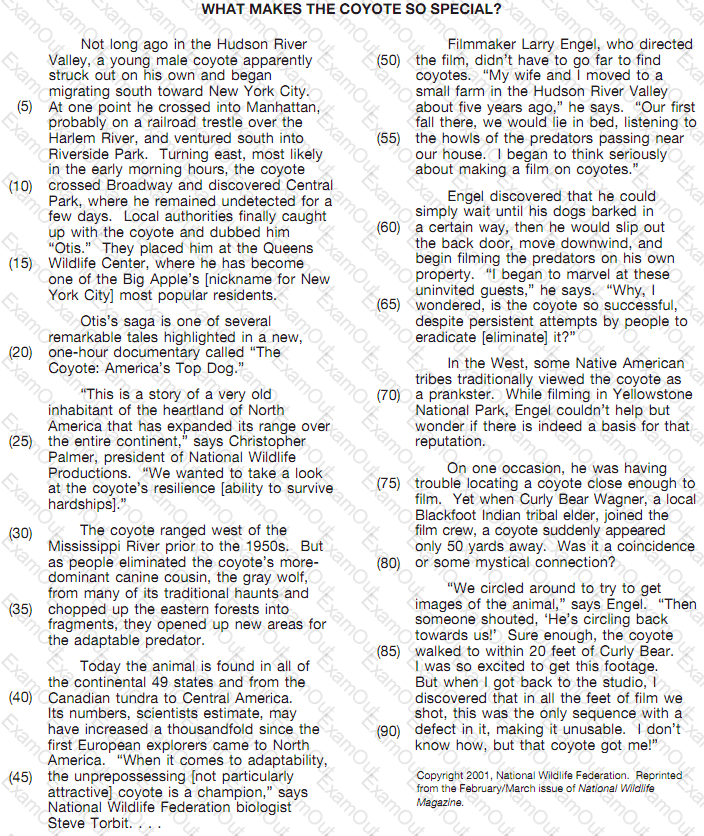
-- Exhibit --
How has the "range" (line 24) of the coyote changed?
Exhibit:
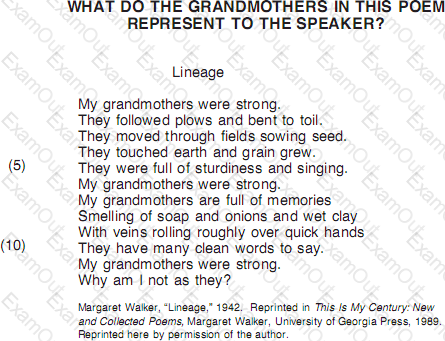
What does the description that the grandmothers “touched earth and grain grew” (line 4) emphasize about them?
-- Exhibit–
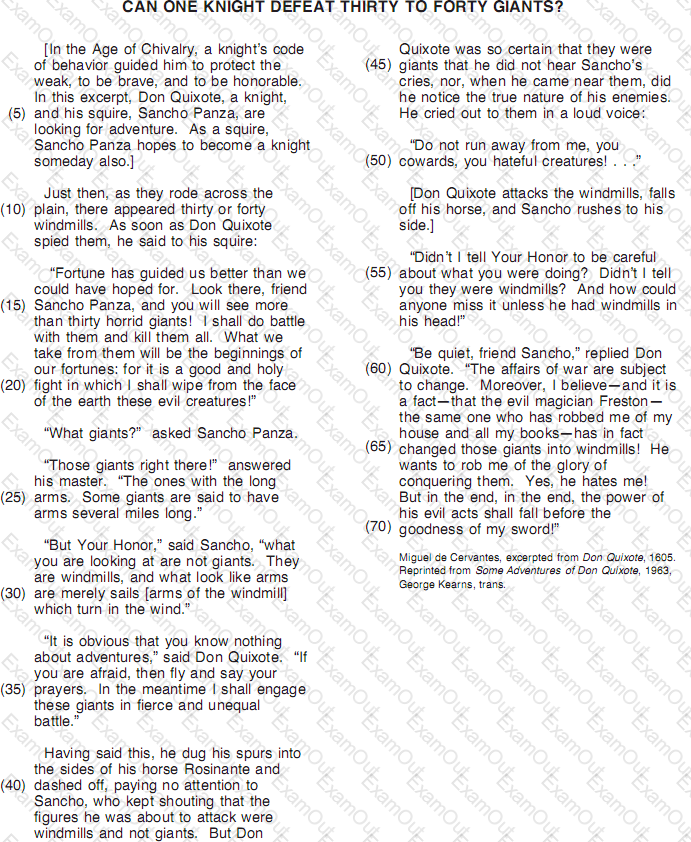
-- Exhibit --
Although Don Quixote is a somewhat comic figure, he is nevertheless characterized as a man who is devoted to duty and faithful to his sworn cause of helping others. Given this background information and the excerpt, why might readers be deeply moved by the character of Don Quixote?
-- Exhibit–
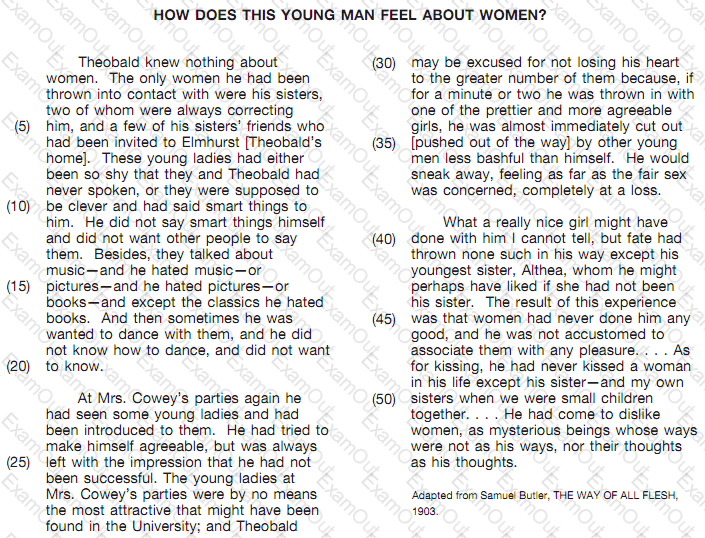
-- Exhibit --
Why does the narrator include details of Theobald’s dislike of music and pictures and books?
Exhibit:
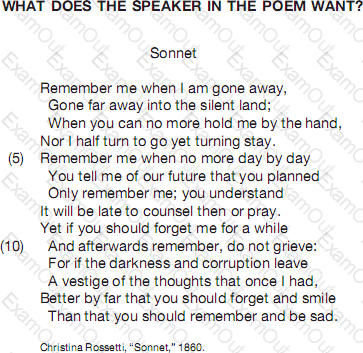
Which word best describes the speaker’s attitude toward the person to whom she is speaking?
-- Exhibit–
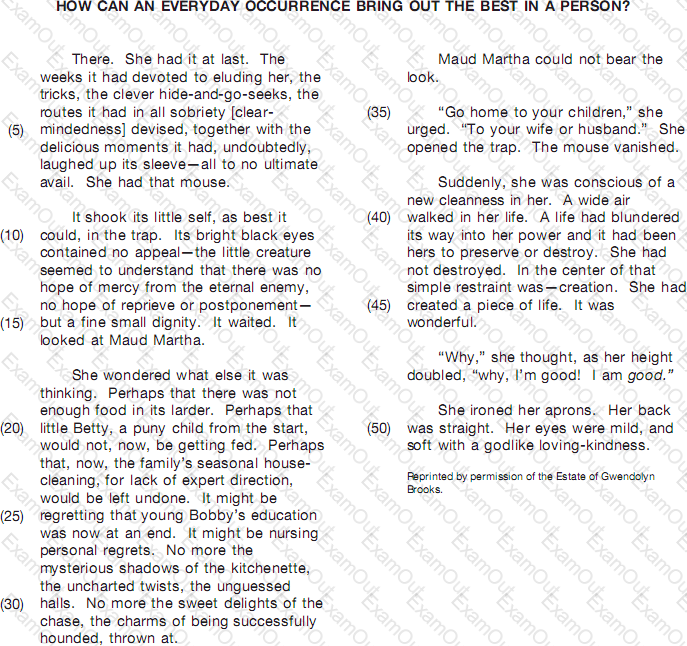
-- Exhibit --
Earlier in this story, Maud Martha’s Gramma Ernestine dies. Maud Martha thinks to herself, “I never saw anyone die before . . . but I’m seeing somebody die right now.”
How does this situation relate to the encounter Maud Martha has with the mouse?
-- Exhibit–
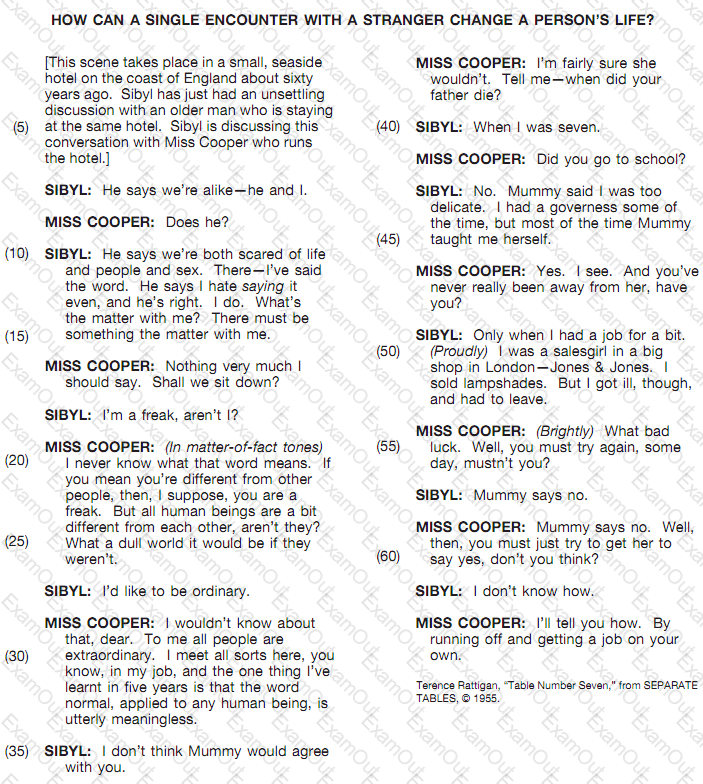
-- Exhibit --
Sibyl tells Miss Cooper that "Mummy says no" (line 57) to her getting another job. Why does Miss Cooper repeat these words aloud (line 58)?

